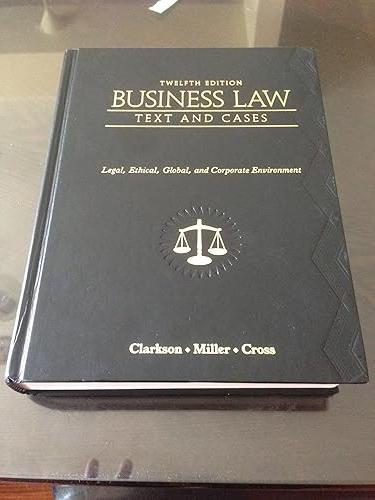McNeill Pediatrics, a J&J [Johnson and Johnson] wholly owned subsidiary, employed [Patty Lee] Smith in the position
Question:
McNeill Pediatrics, a J&J [Johnson and Johnson] wholly owned subsidiary, employed [Patty Lee] Smith in the position of Senior Professional Sales Representative. In essence, Smith’s position required her to travel to various doctors’ offices and hospitals where she extolled the benefi t of J&J’s pharmaceutical drug Concerta to the prescribing doctors. * * * Smith, however, did not sell Concerta (a controlled substance) directly to the doctors, as such sales are prohibited by law.
J&J gave Smith a list of target doctors that it created and told her to complete an average of ten visits per day, visiting every doctor on her target list at least once each quarter.
To schedule visits with reluctant doctors, Smith had to be inventive and cultivate relationships with the doctor’s staff, an endeavor in which she found that coffee and donuts were useful tools. J&J left the itinerary and order of Smith’s visits to the target doctors to her discretion. * * * J&J gave her a budget for these visits and she could use the money in the budget to take the doctors to lunch or to sponsor seminars.
* * * *
In Smith’s deposition she made it clear that she appreciated the freedom and responsibility that her position provided. Though a supervisor accompanied Smith during the doctor visits on a few days each quarter, by her own calculation Smith was unsupervised 95% of the time. As Smith explained during her deposition, “it was really up to me to run the territory the way I wanted to. And it was not a micromanaged type of job. I had pretty much the ability to work it the way I wanted to work it.” According to Smith’s job description, she was required to plan and prioritize her responsibilities in a manner that maximized business results. J&J witnesses testifi ed (and J&J documents confi rmed) that Smith was the “expert” on her own territory and was supposed to develop a strategic plan to achieve higher sales.
* * * *
Smith earned a base salary of $66,000 but was not paid overtime, though J&J, at its discretion, could award her a bonus.
Smith fi led suit seeking overtime pay under the Fair Labor Standards Act (“FLSA”). * * * J&J moved for summary judgment, arguing that she was not entitled to overtime pay under the FLSA because she was exempt from that statute under * * * the “administrative employee”
exemption. [The court granted J&J’s motion, and Smith appealed.]
* * * *
Under the FLSA, employees who work more than 40 hours per week are entitled to overtime pay unless they fall within one of the FLSA’s exemptions. * * * The District Court held that the administrative employee exemption applied to Smith, so we focus on the regulations describing that exemption.
Under the administrative employee exemption, anyone employed in a bonafide administrative capacity is exempt from the FLSA’s overtime requirements.
The Secretary [of Labor] has defined an administrative employee as someone:
(1) Compensated on a salary or fee basis at a rate of not less than $455 per week * * * exclusive of board, lodging or other facilities;
(2) Whose primary duty is the performance of office or non-manual work directly related to the management or general business operations of the employer or the employer’s customers; and
(3) Whose primary duty includes the exercise of discretion and independent judgment with respect to matters of significance. [Emphasis added.]
The parties agree that Smith’s salary qualifies her for the administrative employee exemption, but dispute her qualification for that exemption under the remaining two sections.
We find that the administrative employee exemption applies to Smith. While testifying at her deposition Smith elaborated on the independent and managerial qualities that her position required. Her non-manual position required her to form a strategic plan designed to maximize sales in her territory. We think that this requirement satisfi ed the “directly related to the management or general business operations of the employer” provision of the administrative employee exemption because it involved a high level of planning and foresight, and the strategic plan that Smith developed guided the execution of her remaining duties.
When we turn to the “exercise of discretion and independent judgment with respect to matters of significance” requirement, we note that Smith executed nearly all of her duties without direct oversight. In fact, she described herself as the manager of her own business who could run her own territory as she saw fi t.
Given these descriptions, we conclude that Smith was subject to the administrative employee exemption.
* * * *
The District Court’s order * * * will be affirmed * * *.
Questions:-
1. Is it unfair to exempt employees to deprive them of overtime wages? Why or why not?
2. J&J argued that Smith was exempt under either the administrative employee exemption or the outside salesperson exemption. The district court found, though, that Smith did not qualify for the outside salesperson exemption. What single fact might have made Smith ineligible for the outside salesperson exemption?
Step by Step Answer:

Business Law Text And Cases Legal Ethical Global And Corporate Environment
ISBN: 9780538470827
12th Edition
Authors: Kenneth W. Clarkson, Roger LeRoy Miller, Frank B. Cross





